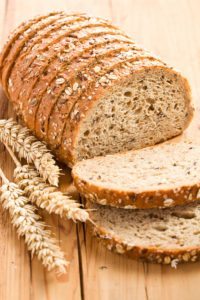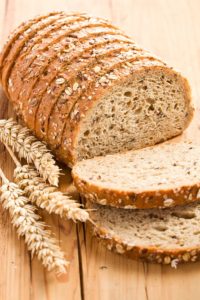If you have been to a grocery store or listened to the news recently, you have noticed that whole grainsare being heavily emphasized as an important part of everyone’s diet. As a family caregiver, you know that what your parent eats makes a tremendous difference in their health and well-being, and are likely always looking for ways to improve their diet and make sure that they are getting everything that they need to keep their body functioning, thriving, and healthy.

This may lead you to wonder just how important whole grains really are, and how much your parent should be eating on a regular basis to get the maximum benefit.
Some of the benefits of eating whole grains might include:
• Protein.Protein is an essential nutrient that is responsible for wound healing, cell growth and repair, energy, and more. Many people think that animal sources such as meat and eggs are the only place to get high quality protein, but this is not the case. Whole grains are a great source of plant protein and can be combined with other plants foods to produce “whole protein”, or proteins with all of the essential amino acids.
• Protect their heart. Studies have shown that diets high in whole grains can be beneficial to the cardiovascular system and reduce the risk of heart disease, heart attacks, and other such issues. This is particularly true when these whole grains are eaten in place of refined grains.
• Lower cholesterol. Eating foods that are high in dietary fiber, such as whole grains, can help the body to better manage cholesterol. This is because the fiber aids in healthy digestion, moving food through the body faster and more efficiently, and helps to eliminate cholesterol before it can turn into dangerous plaque.
• Energy.Whole grains are a fantastic energy source. They contain complex carbohydrates and protein, and can also include healthy fats. These all work together to provide lasting, sustained energy without the massive crash of simple carbs
If you have noticed that your senior’s challenges have increased to the point that you are no longer able to handle them confidently, or your own limitations or schedule have changed and made it so that you can no longer fulfill your parent’s needs, now may be the ideal time for you to consider home care for them.
Home care can fill care gaps that might exist in your care efforts and ensure that any care tasks that your parent needs but you are not able to fulfill on your own are handled respectfully and effectively. This can not only help your parent to stay as healthy, comfortable, safe, and happy as possible as they age in place, but it can also ease your stress and support a better quality of life for both you and your parent.
Source: http://www.healthline.com/nutrition/9-benefits-of-whole-grains






